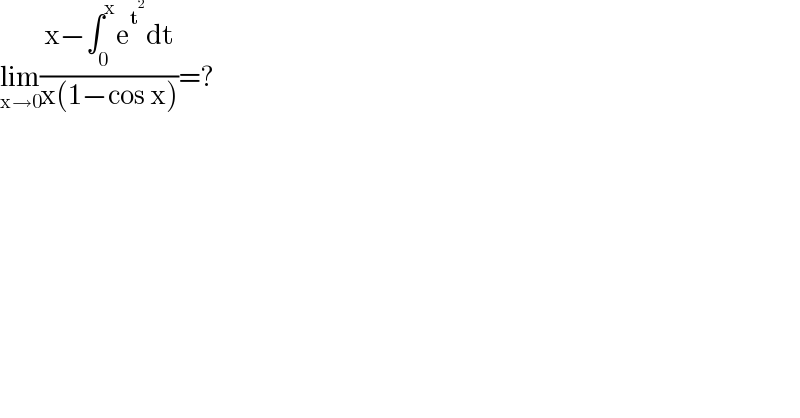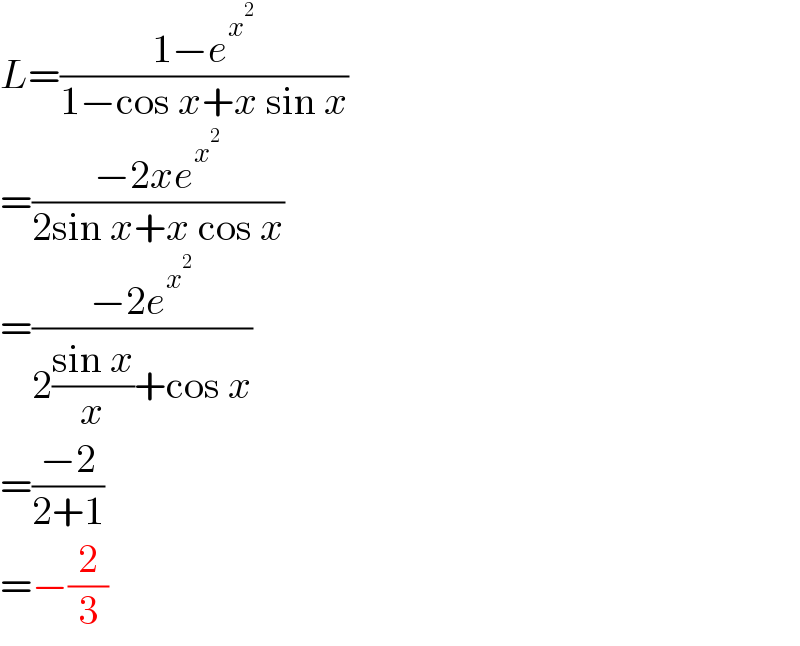
Question Number 160080 by qaz last updated on 24/Nov/21

$$\underset{\mathrm{x}\rightarrow\mathrm{0}} {\mathrm{lim}}\frac{\mathrm{x}−\int_{\mathrm{0}} ^{\mathrm{x}} \mathrm{e}^{\mathrm{t}^{\mathrm{2}} } \mathrm{dt}}{\mathrm{x}\left(\mathrm{1}−\mathrm{cos}\:\mathrm{x}\right)}=? \\ $$
Answered by mr W last updated on 25/Nov/21

$${L}=\frac{\mathrm{1}−{e}^{{x}^{\mathrm{2}} } }{\mathrm{1}−\mathrm{cos}\:{x}+{x}\:\mathrm{sin}\:{x}} \\ $$$$=\frac{−\mathrm{2}{xe}^{{x}^{\mathrm{2}} } }{\mathrm{2sin}\:{x}+{x}\:\mathrm{cos}\:{x}} \\ $$$$=\frac{−\mathrm{2}{e}^{{x}^{\mathrm{2}} } }{\mathrm{2}\frac{\mathrm{sin}\:{x}}{{x}}+\mathrm{cos}\:{x}} \\ $$$$=\frac{−\mathrm{2}}{\mathrm{2}+\mathrm{1}} \\ $$$$=−\frac{\mathrm{2}}{\mathrm{3}} \\ $$
